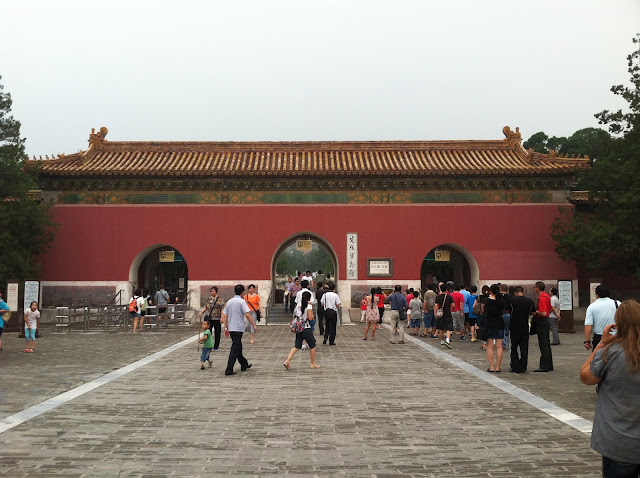"...some are preordained to eternal life, others to eternal damnation." John Calvin
Are people predestined for heaven or hell before they are born? Some Christians believe it, other Christians reject it, and some wrestle with whether it is true or not. It is the classic "free will vs. determinism" debate: Do we have a choice in whether we believe in God, or is it out of our hands?
John Lennox wades into these deep waters in his book "Determined to Believe: The Sovereignty of God, Faith and Human Responsibility".
This topic came up at a recent wedding reception, where I overheard a preacher discussing one difficult implication of determinism - specifically, if God is responsible for everything, as determinism teaches, then isn't God also responsible for evil? The pastor explained that since God is good, he can't be responsible for evil. Later, I asked him if he was Reformed (1) and he responded "Absolutely!" (2) When I asked him why, he said emphatically "Because the Scriptures clearly teach it!", and he proceeded to quote several verses from the New Testament. I took the opportunity to question him: "Would you say that God caused Adam and Eve to sin and thus, humanity to fall from grace? "Yes", he affirmed, "ultimately it will bring more glory to God". I continued my questions: "What about some of the most heinous actions people commit against others such as murder, rape, and torture, would you say God also caused that?" He affirmed that as well, although he seemed less comfortable with that assertion. He went on to explain that God in his Sovereignty can bring good from all things.
Wrestling with Determinism
Now, I believe that God can bring good from all things. (3) But I have trouble believing God ordains heinous acts of people against others, or even that some people are doomed to eternal damnation before they were born. But if the Bible really teaches that, then who am I to question it? Yet I've always been uncomfortable with this teaching. After all, If God predetermines the eternal destiny of people before they are born, what does it say about his character? Is he really loving and good? How can he be a God of love and justice if he preordains some to damnation but yet somehow holds them responsible for failing to see what they couldn't see or do what they couldn't do?
It was my conversation above with the Reformed preacher that finally motivated me to read Lennox's book, and I'm so glad I did. Lennox challenges theistic determination and its implications in a respectful tone. With logic and intellect, he examines the key Bible verses used to support determinism (4), including within their larger context, their interpretation from the original Greek, and some potentially alternate meanings of those verses.
After reading his book I have more peace about this topic because I know there is strong Biblical support for what my intellect and heart have sensed all along. Namely, while I totally believe in the Sovereignty of God, I also believe he gives us the free will to choose or reject him; to believe, or not to believe, in Him.
Is God a Moral Monster?
Because the doctrine of determinism appears to many to call into question the love and goodness of God (as described above), it alienates some people who are beginning to think about Christianity. Some Christians also wrestle with and think deeply about the big topics of God's sovereignty and human freedom and responsibility. These are serious issues, and are the primary reasons why Lennox wrote his book.
A Couple of Brief Examples:
I thought about trying to summarize the book in this post, but that would be difficult because it is such a weighty book. However, at the risk of ignoring many parts of his book, a couple of examples may be helpful. Here are two verses from the Bible, with comments following each of them by Lennox:
Whoever believes in the Son has eternal life, but whoever rejects the Son will not see life, for God's wrath remains on him. John 3:36.
Lennox: "It is hard to imagine how this statement could have been made if men and women did not possess the capacity to believe.
For God so loved the world that he gave his one and only Son, that whoever believes in him shall not perish but have eternal life. John 3:16.
Lennox: "It doesn't say "whoever has eternal life believes in him". (5)
Of course, there are other verses that indicate determinism and Lennox addresses each of them, as I mentioned above. (4)
Conclusion
Lennox is careful to avoid labels and acknowledges his respect for those Christians who espouse determinism. And to be sure, there are varying degrees of determinism, and not all "determinists" would say that God preordains some people to eternal damnation or to commit heinous acts (6). Nevertheless, when such influential Christians like John MacArthur, John Piper, R.C. Sproul, and Jonathan Edwards emphatically teach (or have taught) it, the topic of determinism must be reckoned with. Lennox also notes a number of well-known Christians who have rejected, or at least questioned, determinism or portions of it such as C.S. Lewis, G.K. Chesterton, C.H. Spurgeon, John Wesley, A.W. Tozer, Alvin Planinga, William Lane Craig, N.T. Wright. (7)
If you are a Christian, or a person considering Christianity, who is troubled by the implications of determinism, this book could be extremely helpful to you. I highly recommend it.
Note: Lennox also discusses (and believes in) assurance of salvation, a huge and important topic. But in the interests of space and brevity, I haven't summarized it herein.
Footnotes:
(1) Reformed Theology teaches determinism.
(2) In my experience, those who believe in determinism are very adamant in their views.
(3) Romans 8:28.
(4) E.g., Romans 8:29-30; Ephesians 1:5; Ephesians 1:11-12.
(5) In Chapter 10 of "Determined to Believe?", The Irreversibility of Regeneration.
(6) For example, the Lutheran Church teaches unconditional election to salvation but rejects predestination to damnation.
(7) Lennox also quotes Martin Luther quite a lot, but Luther's position, at the risk of oversimplifying, seemed to fall somewhere in the middle.
Are people predestined for heaven or hell before they are born? Some Christians believe it, other Christians reject it, and some wrestle with whether it is true or not. It is the classic "free will vs. determinism" debate: Do we have a choice in whether we believe in God, or is it out of our hands?
John Lennox wades into these deep waters in his book "Determined to Believe: The Sovereignty of God, Faith and Human Responsibility".
This topic came up at a recent wedding reception, where I overheard a preacher discussing one difficult implication of determinism - specifically, if God is responsible for everything, as determinism teaches, then isn't God also responsible for evil? The pastor explained that since God is good, he can't be responsible for evil. Later, I asked him if he was Reformed (1) and he responded "Absolutely!" (2) When I asked him why, he said emphatically "Because the Scriptures clearly teach it!", and he proceeded to quote several verses from the New Testament. I took the opportunity to question him: "Would you say that God caused Adam and Eve to sin and thus, humanity to fall from grace? "Yes", he affirmed, "ultimately it will bring more glory to God". I continued my questions: "What about some of the most heinous actions people commit against others such as murder, rape, and torture, would you say God also caused that?" He affirmed that as well, although he seemed less comfortable with that assertion. He went on to explain that God in his Sovereignty can bring good from all things.
Wrestling with Determinism
Now, I believe that God can bring good from all things. (3) But I have trouble believing God ordains heinous acts of people against others, or even that some people are doomed to eternal damnation before they were born. But if the Bible really teaches that, then who am I to question it? Yet I've always been uncomfortable with this teaching. After all, If God predetermines the eternal destiny of people before they are born, what does it say about his character? Is he really loving and good? How can he be a God of love and justice if he preordains some to damnation but yet somehow holds them responsible for failing to see what they couldn't see or do what they couldn't do?
 |
| John Lennox, author of many excellent Christian apologetic books, including "Determined to Believe?" |
After reading his book I have more peace about this topic because I know there is strong Biblical support for what my intellect and heart have sensed all along. Namely, while I totally believe in the Sovereignty of God, I also believe he gives us the free will to choose or reject him; to believe, or not to believe, in Him.
Is God a Moral Monster?
Because the doctrine of determinism appears to many to call into question the love and goodness of God (as described above), it alienates some people who are beginning to think about Christianity. Some Christians also wrestle with and think deeply about the big topics of God's sovereignty and human freedom and responsibility. These are serious issues, and are the primary reasons why Lennox wrote his book.
A Couple of Brief Examples:
I thought about trying to summarize the book in this post, but that would be difficult because it is such a weighty book. However, at the risk of ignoring many parts of his book, a couple of examples may be helpful. Here are two verses from the Bible, with comments following each of them by Lennox:
Whoever believes in the Son has eternal life, but whoever rejects the Son will not see life, for God's wrath remains on him. John 3:36.
Lennox: "It is hard to imagine how this statement could have been made if men and women did not possess the capacity to believe.
For God so loved the world that he gave his one and only Son, that whoever believes in him shall not perish but have eternal life. John 3:16.
Lennox: "It doesn't say "whoever has eternal life believes in him". (5)
Of course, there are other verses that indicate determinism and Lennox addresses each of them, as I mentioned above. (4)
Conclusion
Lennox is careful to avoid labels and acknowledges his respect for those Christians who espouse determinism. And to be sure, there are varying degrees of determinism, and not all "determinists" would say that God preordains some people to eternal damnation or to commit heinous acts (6). Nevertheless, when such influential Christians like John MacArthur, John Piper, R.C. Sproul, and Jonathan Edwards emphatically teach (or have taught) it, the topic of determinism must be reckoned with. Lennox also notes a number of well-known Christians who have rejected, or at least questioned, determinism or portions of it such as C.S. Lewis, G.K. Chesterton, C.H. Spurgeon, John Wesley, A.W. Tozer, Alvin Planinga, William Lane Craig, N.T. Wright. (7)
If you are a Christian, or a person considering Christianity, who is troubled by the implications of determinism, this book could be extremely helpful to you. I highly recommend it.
Note: Lennox also discusses (and believes in) assurance of salvation, a huge and important topic. But in the interests of space and brevity, I haven't summarized it herein.
Footnotes:
(1) Reformed Theology teaches determinism.
(2) In my experience, those who believe in determinism are very adamant in their views.
(3) Romans 8:28.
(4) E.g., Romans 8:29-30; Ephesians 1:5; Ephesians 1:11-12.
(5) In Chapter 10 of "Determined to Believe?", The Irreversibility of Regeneration.
(6) For example, the Lutheran Church teaches unconditional election to salvation but rejects predestination to damnation.
(7) Lennox also quotes Martin Luther quite a lot, but Luther's position, at the risk of oversimplifying, seemed to fall somewhere in the middle.






























